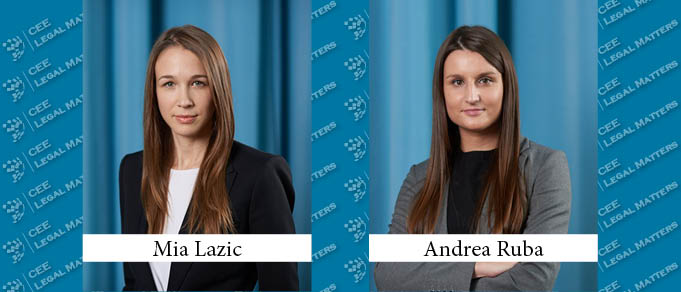The strategic importance of the energy sector in securing a stable and sustainable energy supply is currently a hot topic across Europe. The global rise of energy prices, supply chain issues, and tackling climate change are some of the major challenges all European countries are currently facing. Croatia is no different. While tackling these global challenges, the Croatian energy sector has been undergoing major legislative and regulatory changes, especially in the field of renewable energy.
One of the particular challenges is achieving the national goal of using renewable energy for a minimum of 36.6% of the total gross energy consumption by 2030. Due to a significant stagnation in the development of renewable projects in the past five years, and taking into account the complexity and length of the development process, Croatia is on a tight timeline to increase its current share of approximately 28% in order to meet that target.
To facilitate the increase of renewable energy projects the Croatian government has introduced a number of legislative changes in 2021 and 2022, including enacting the new Electricity Market Act and the new Renewable Energy Act. These legislative changes have two major goals. First, to simplify the permitting process and ensure more active support for developers of renewable projects. Second, to facilitate transparency and stability in the process of development and in granting incentives.
As reaching renewable energy targets is possible only with significant private investments and financing, the government aims to ensure a more active approach of the Ministry of Economy and Sustainable Development, designated to act as the contact point for investors and actively provide guidelines during the licensing process. By the end of 2022, the Ministry of Economy and Sustainable Development and the Croatian Energy Market Operator (HROTE) are also expected to publish a comprehensive guide on licensing for the development of renewable projects, aiming to clarify the complex regulatory regime for future investors.
In terms of licensing, major changes were introduced in the process of issuing energy approval as one of the key licenses in the development process. Energy approval is now issued in a competitive public tender process facilitated by the Ministry of Economy and Sustainable Development. As the energy approval is now a first step in the licensing process, it assumes a higher initial investment cost for the new projects. However, it provides a more predictable timeline for project development and comfort to investors that the location subject to such approval will be secured for a period of up to five years.
Finally, in order to boost the development of new projects, it is particularly important to ensure a transparent and predictable incentive system. Although a new market premium incentive system was first introduced in Croatia in 2016, it took until March of this year for the first tender for larger capacity projects to be released. The huge time gap between the previous feed-in-tariff system (abolished in 2015) and the applicability of the new market premium system has caused a significant delay and regulatory issues for the projects that have commenced the development but were not able to apply for any kind of incentive. That resulted in a higher regulatory risk and the reluctance of investors and lenders in providing significant financing for the development of larger capacity projects.
The new regime for market premium incentives is expected to change that. Although a market premium is payable for the net quantities of supplied electricity based on sales generated on the market – and does not involve a guaranteed offtake of electricity by HROTE – the market has still seen an increased interest from investors in renewable projects.
The mentioned legislative changes and continuing effort of the Croatian authorities to provide proactive support to investors are certainly a step forward in accomplishing the renewable energy targets. However, there is still a long way to go in the transition to clean energy, from setting up the regulatory framework, to the completion of investments, and reaching commercial operations for the renewable projects. Providing efficient and timely support to investors, reducing the length of administrative procedures, and establishing a predictable and transparent public tender process will be crucial for Croatia to successfully move forward on the clean energy path.
By Mia Lazic, Partner, and Andrea Ruba, Senior Associate, Savoric & Partners
This Article was originally published in Issue 9.6 of the CEE Legal Matters Magazine. If you would like to receive a hard copy of the magazine, you can subscribe here.

















